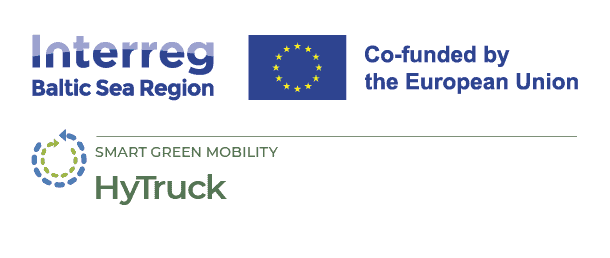
Cutting-edge developments in hydrogen storage, shipping applications, and certification
11 June 2025
Hydrogen storage and shipping solutions – Hydrogenious Maritime
Dr. Daniel Meyer presented Hydrogenious Maritime’s vision and practical advances in enabling hydrogen-based propulsion for maritime vessels via LOHC (Liquid Organic Hydrogen Carriers).
LOHC Technology
- LOHC stores hydrogen safely in benzyl toluene, eliminating the need for pressurized molecular hydrogen.
- The carrier fluid is reusable, non-explosive, and can be handled using conventional fuel infrastructure.
- Hydrogen stored in LOHC maintains high purity and is not released over time, even in long-term storage.
- Hydrogenious has operational experience in Erlangen, Germany, with a hydrogen refuelling station powered by photovoltaic electrolysis and LOHC-based storage.
Maritime demonstration projects
- HyNjord Project (funded by Enova, with Østensjø and Equinor): Pilot system with a 130 kW LOHC-based power unit for auxiliary use on an offshore support vessel.
- Ship-AH2OY Project (Horizon Europe-funded): Scaling up to a 1 MW LOHC fuel cell system for propulsion on CSOVs (commissioning service operation vessels) with 17 partners from 7 countries.
- Safety advantages over ammonia were emphasized, particularly for crewed vessels due to LOHC’s benign handling characteristics.
Value proposition
- Up to 98% CO₂ emissions reduction (from 539 kg/MWh to 10 kg/MWh).
- Compatible with existing liquid fuel infrastructure.
- Long-term commercialization goal set for 2028, after full system demonstrations.
RFNBO Certification for transport – Example of CertifHy
Mr. Christopher Kutz highlighted the increasing significance of RFNBO (Renewable Fuels of Non-Biological Origin) certification for hydrogen in regulatory and commercial contexts.
Certification overview
- RFNBO certification ensures compliance with RED II/III directives and supports differentiation of renewable hydrogen.
- Two key markets:
- Voluntary market: Uses Guarantees of Origin (GO) and non-governmental certification schemes.
- Compliance market: Tied to RED regulatory obligations using mass-balance tracking.
- CertifHy is an EU-recognised scheme for RFNBO, active since 2014, and formally approved in 2024.
Application and relevance
- Key stakeholders include hydrogen producers, traders, and fuel suppliers, especially those needing to meet transport sector quotas:
- By 2030, 5.5% of transport fuel must be renewable, with a sub-target of 1% from RFNBOs.
- CertifHy supports compliance through modular certification along the hydrogen value chain (e.g., from electrolysis to final delivery).
- Compliance verification includes tracking GHG emissions and electricity source correlations.
HyTruck project context
- LBST supported regional planning for HyTruck’s German pilot, identifying infrastructure needs in Mecklenburg-Vorpommern.
- Assessed hydrogen transport corridors and renewable gas infrastructure potential through 2050, with emphasis on stakeholder collaboration and EU-wide standardization.
Upcoming events and next steps
- European Conference on Hydrogen P2X, 11–12 June 2025, Copenhagen.
- European Hydrogen Week, Brussels, and Hydrogen Technology Expo Europe, Hamburg (Autumn 2025).
- Next HyTruck Breakfast Briefing: 2 July 2025, hosted by the Polish Alternative Fuels Association.





